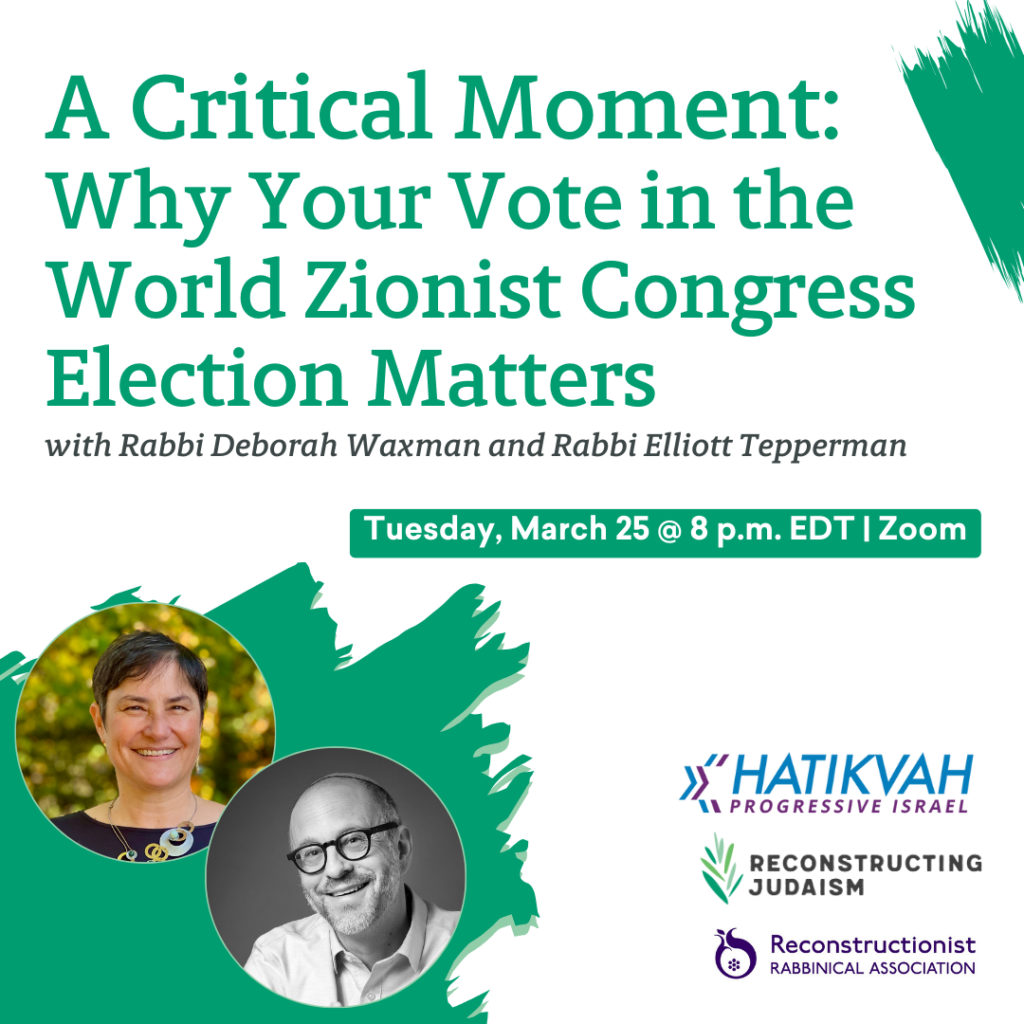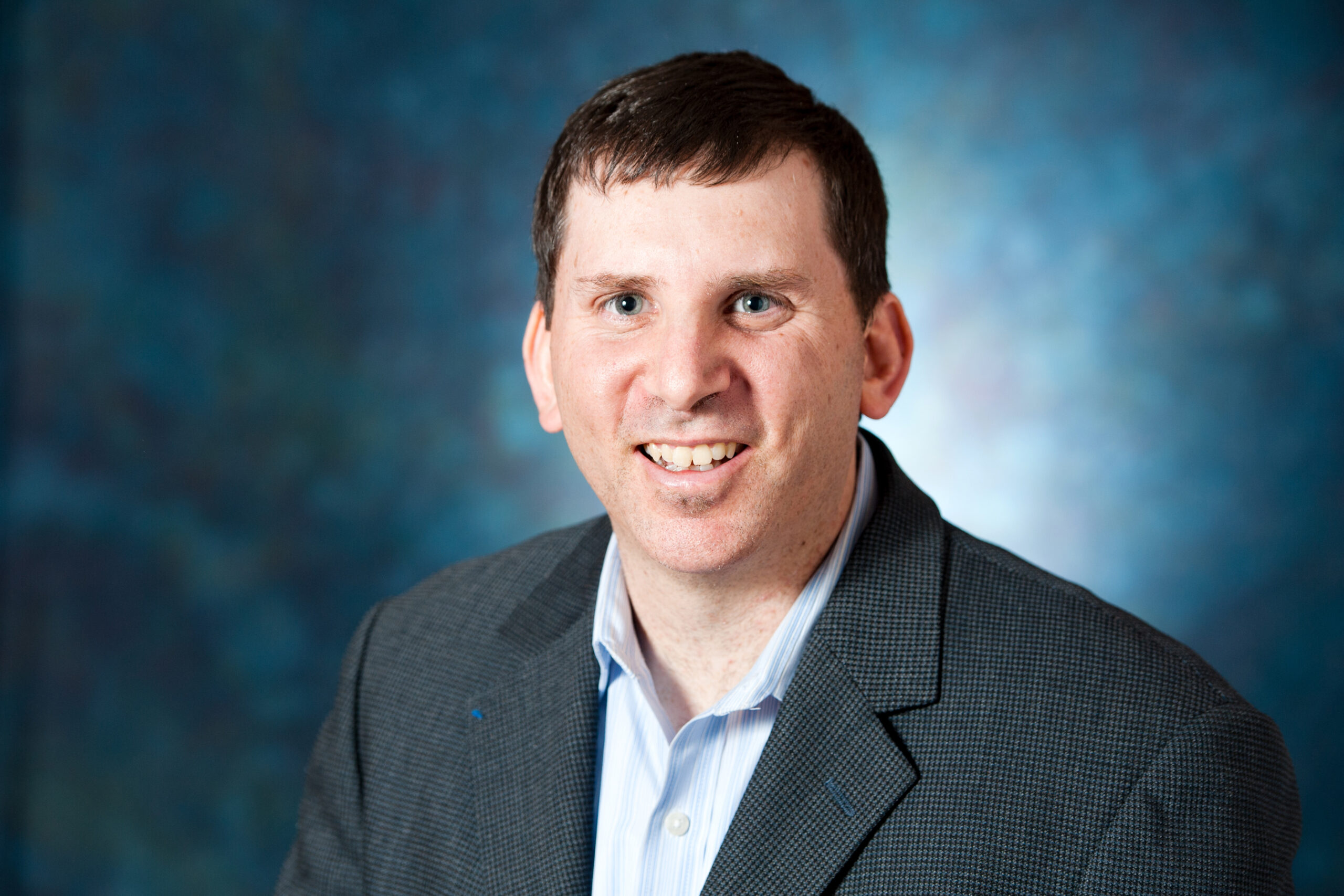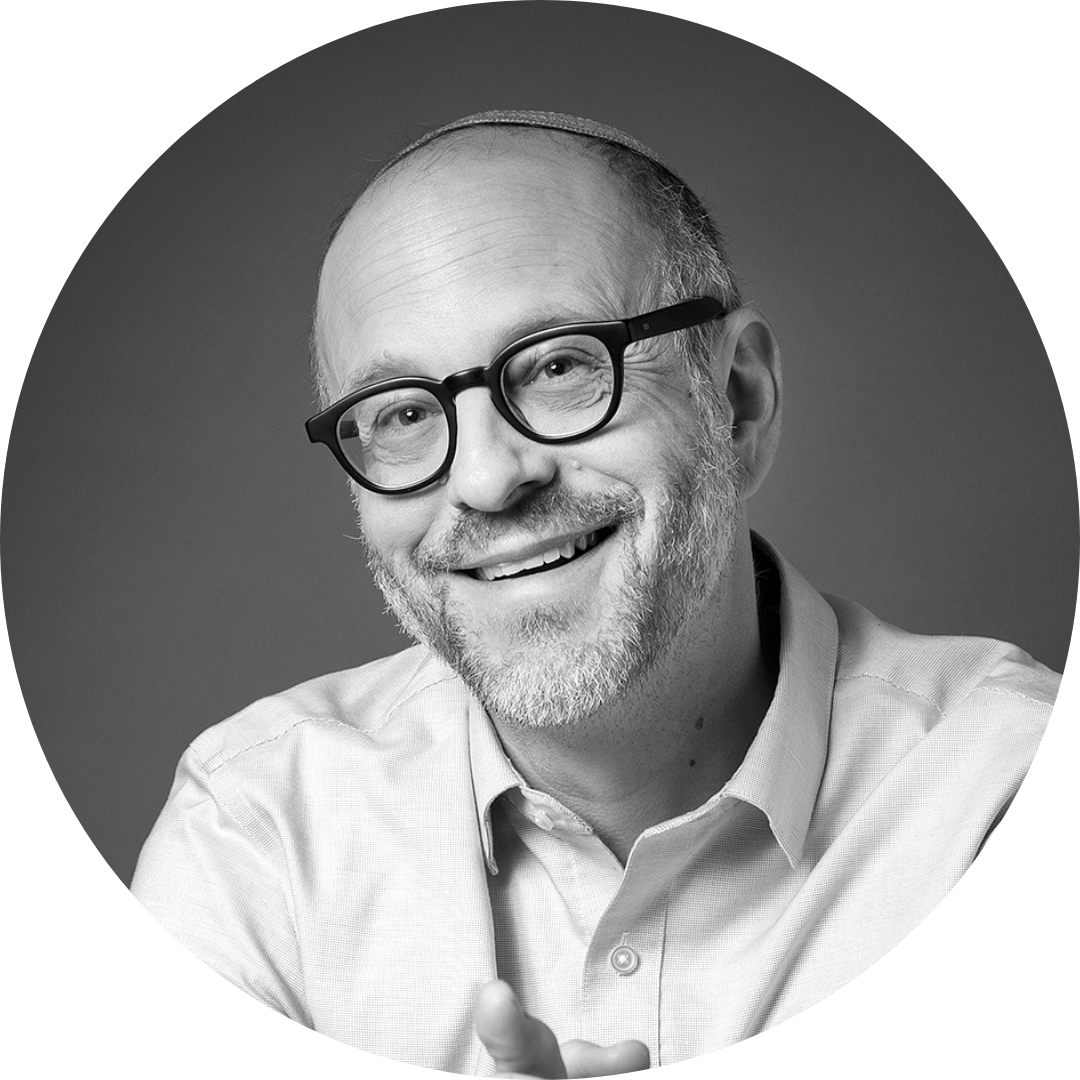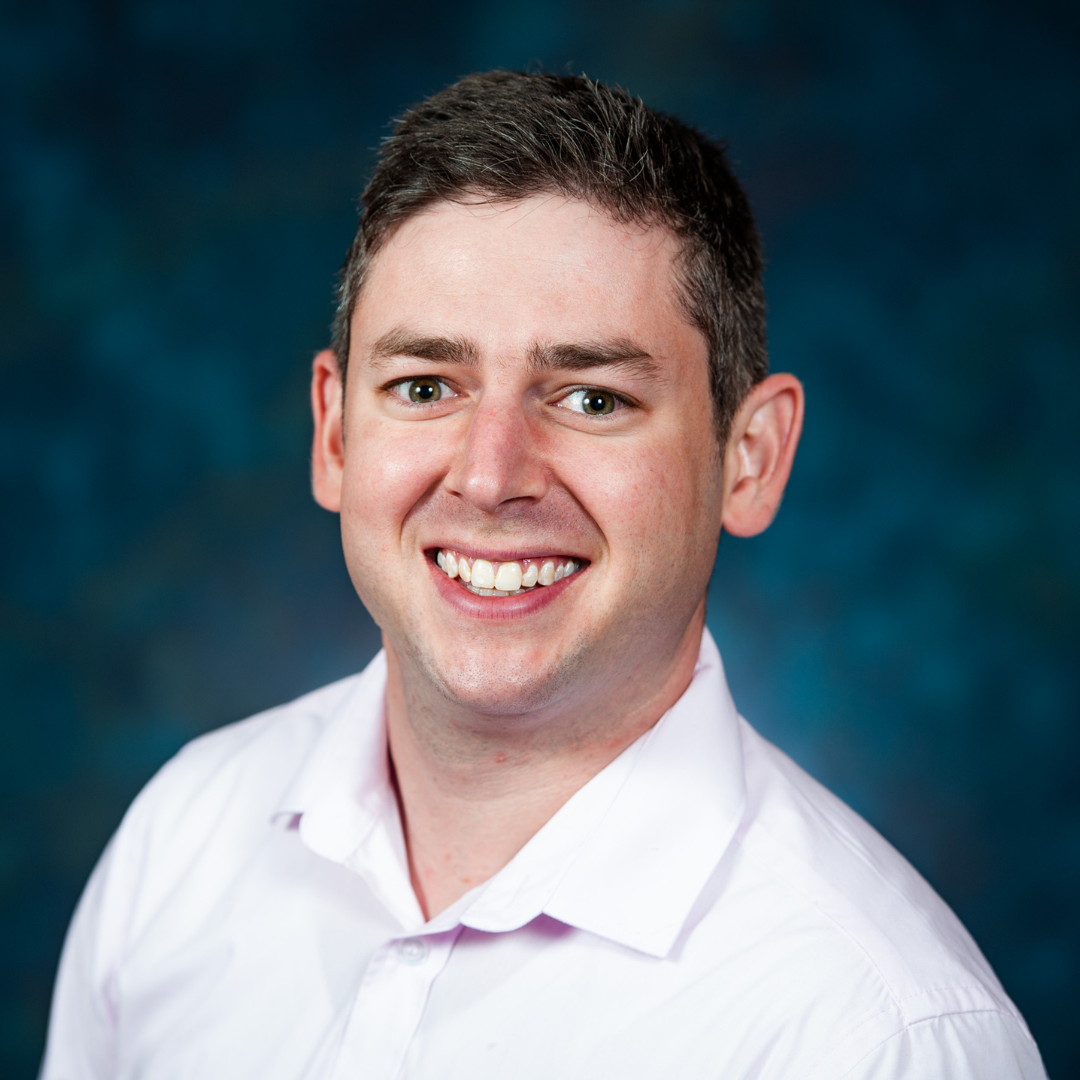Voting for the World Zionist Congress runs online from March 10 to May 4 and is open to anyone who self-identifies as Jewish.
Reconstructing Judaism supports the Hatikvah: Progressive Israel Slate, which stands for religious and cultural pluralism in Israel and Jewish communities worldwide. The slate includes 131 candidates, among them Rabbi Deborah Waxman, Ph.D., Reconstructing Judaism’s president & CEO; Justin Rosen Smolen, VP for Thriving Communities & Partnerships and Rabbi Elliot Skiddell, interim director of rabbinic placement and employment.
Often called the parliament of the global Jewish people, the World Zionist Congress meets every five years and will convene this October in Jerusalem. First organized by Theodor Herzl in 1897, it remains a key decision-making body for global Jewry. This year, 21 diverse slates are competing for votes, shaping the allocation of $5 billion for projects in Israel and global Jewish communities, as well as governance and policy matters.
Rabbi Elliott Tepperman of Bnai Keshet in Montclair, N.J., is another Reconstructionist leader running on the Hatikvah slate. He met with Reconstructing Judaism staff members Bryan Schwartzman and Sam Wachs to discuss why this election is important. The following is an abridged version of their conversation, edited for length and clarity.
Bryan: Why are you personally running as a delegate?
Elliott: I’ve been going to Israel since I was about 18 years old. I love Israel. I love the people. I love the feeling of being there.
I have also traveled to almost every important Palestinian town. I feel clear that the fate of the Jewish people and the fate of Jews in Israel are inextricably intertwined. And I also think that the fate of all Israelis is deeply intertwined with the fate of Palestinians. There is no path forward, no peace that does not include some way of coexisting between the Israelis and the Palestinians who live in this land.
If I have the opportunity to be a delegate, I come into it with a sense of urgency. The Jewish people need to build an Israel that is democratic and sustainable and can continue to be a homeland for the Jewish people for generations to come.
Sam: What is the Hatikvah slate and what values does it stand for?
Elliott: The Hatikvah Slate stands for gender equity, democracy, coexistence, building peace, and pluralism. It stands in opposition to the forces that would fight against those values.
A vote for Hatikvah is a vote for some of the most extraordinary Jewish leaders in America. People like our own Rabbi Deborah Waxman, people like Rabbi Jill Jacobs, some of the most important leaders from J Street, and rabbis who are then affiliated with those movements.
Bryan: What is at stake in this election? What is the urgency?
Elliott: There is a movement in the World Zionist Congress of a much more messianic supremacist right-wing force. And they are using the power of this institution to send money to settlements and to direct funding for projects that are anti-democratic.
If we win, then we can fund projects that express our progressive values, projects that build youth movements, that help to build kibbutzim in the north and the south rather than strengthen settlements in the occupied territories.
This is a matter of simple math. The more votes we get, the more seats we get. The bigger our coalition, the bigger our power, and the more we will be able to impact where the money gets allocated.
Sam: How can someone register to vote?
Elliott: You can go to Hatikvah Slate website, or you can go to World Zionist Congress website. It just takes about five minutes. You give a small donation of $5; you register and then you’ll get to vote. Vote Hatikvah.
Sam: There is plenty of debate now over the word Zionism and what it means today. What if someone identifies as Jewish but struggles with the term?
Elliott: We’re the ones who are going to determine what Zionism means. So if you believe that Zionism means self-determination for all of the people who are living in the land right now controlled by Israel, that Zionism should mean equal rights — no matter what your religion is — no matter what your cultural identity is, then you have to stand up and vote.
Additional Resources
Watch recordings from “All the People Israel is Responsible for One Another.”
Explore these Resources about Israel and Reconstructionist Values.
Listen to this podcast about Israel and rabbinic education.
Join Rabbi Deborah Waxman and Rabbi Elliott Tepperman for an insightful discussion in our webinar covering on March 25 the importance of the WZC, the impact your vote has on Israel’s future and how you can get involved.











